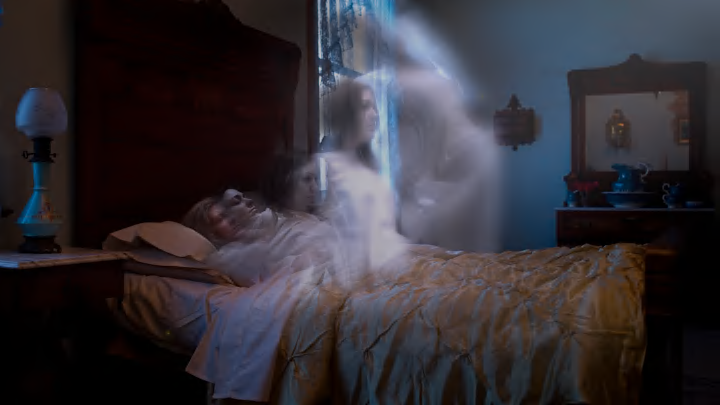Gathering around a campfire to share bone-chilling ghost stories is a classic camping ritual. These tales can induce nightmares, but some people can’t get enough of them. What is it about scary ghost stories that has captivated humanity for thousands of years?
Table of Contents
Why We Love Ghost Stories
There are several possible reasons why people tell ghost stories. One explanation is that our fear of the unknown makes these tales appealing. We don’t understand much about death and the afterlife, making supernatural stories terrifying yet intriguing. And when made to be sinister antagonists, ghosts become more menacing and, thus, more fascinating.
Various versions of spirits appear in cultures throughout the world, but the idea of a being that haunts someone or somewhere is a particularly Western concept. According to anthropologist Carie Hersh, these scary depictions of ghosts may reflect society’s discomfort and trauma surrounding conversations about death. “We tend to have a lot of rituals around death, and some of that is to enact a sense of control over this ultimately unknowable transition,” she told Northeastern Global News in 2023.
As existential psychologist Clay Routledge explained to the John Templeton Foundation in 2022, believing in the supernatural can also soothe our anxieties about mortality. Although becoming a wandering spirit may not sound appealing, some may view ghost stories as explanations of what can happen after death; they answer existential questions and offer possibilities about a phenomenon that isn’t widely understood.
The Science Behind Our Fascination with Horror
Many of us want stimulation from horror, whether we’re reading Stephen King novels or watching Wes Craven movies. As Haiyang Yang and Kuangjie Zhang wrote for the Harvard Business Review, seeing or anticipating something scary can stimulate people negatively (with fear or anxiety) or positively (through excitement or joy). Horror provides both sensations simultaneously, with the most frightening moment unleashing the most pleasure. Fear can also cause adrenaline rushes—people experience boosts in energy and sensations in the “fight or flight” mindset, which might leave them wanting more.
The concept of a “protective frame” can also be applied to people’s ability to enjoy horror. The protective frame can be divided into three categories: the safety frame, detachment, and a sense of control.
The safety frame is about understanding that an entity in a story or movie cannot harm us, while detachment refers to the skill of mentally disconnecting oneself from the moment of horror because one knows it’s not real. The last category applies to controlling the scary things you’re exposed to—it’s easier to enjoy something terrifying if you’re managing the situation and are sure you can overcome it.
This psychological concept prevents people from allowing fear to take over and reminds them that it’s temporary. As a result, they can be OK with—or perhaps even enjoy—seeing terrifying things. Those without protective frames feel as though they are in danger when witnessing something scary and don’t want to experience the discomfort again.
Read More About Ghosts:
Have you got a Big Question you'd like us to answer? If so, let us know by emailing us at bigquestions@mentalfloss.com.
